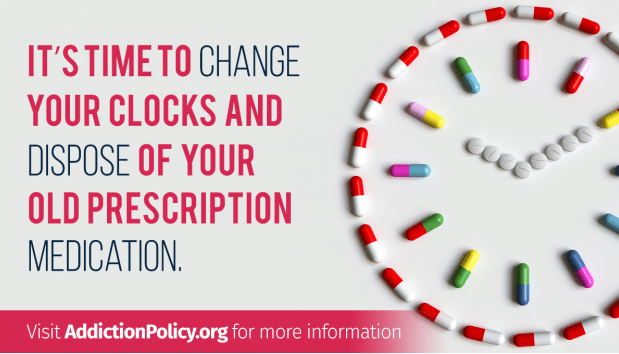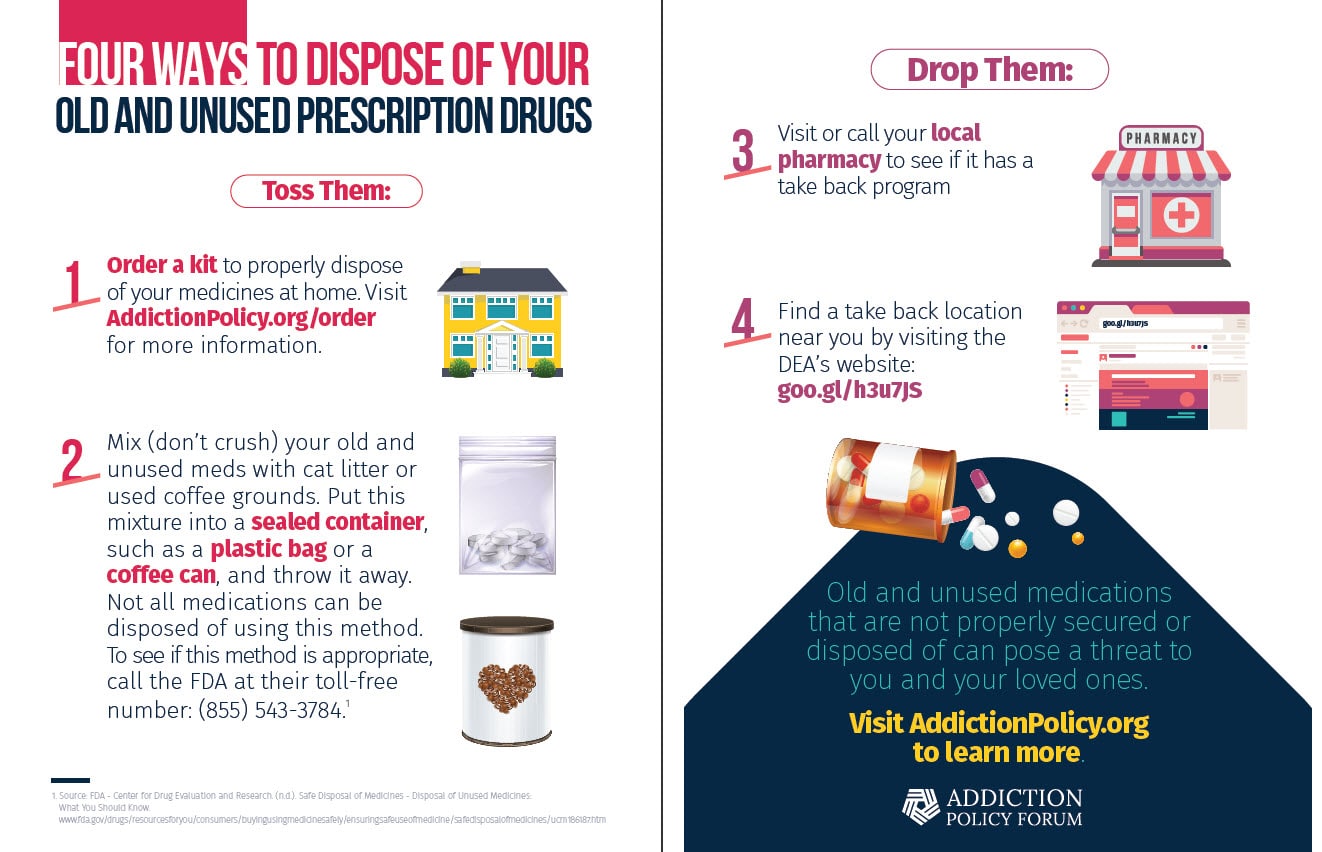The Addiction Policy Forum recently partnered with a number of local organizations in Ohio, a state hit hard by the opioid epidemic, to distribute free Rx disposal kits. The kits include an Rx disposal pouch and educational materials about the risks of holding onto unused medications. The Addiction Policy Forum hopes that this will become a biannual ritual in the U.S. when Daylight Saving occurs.

Want to help address addiction in America? Start with your medicine cabinet.
Heroin is involved in many of the opioid-related deaths, but addiction doesn’t always begin with the use of illicit drugs. Studies have shown that two in three people who currently use heroin started out by using prescription pain medications for nonmedical purposes. According to the Federal Government, more than 2,000 teenagers will misuse a prescription drug for the first time today, tomorrow, and the day after that. Many of these first-time encounters with opioids happen in homes with leftover medications that were initially prescribed by a physician.
The Journal of the American Medical Association reported that two-thirds of surgical patients end up with unused pain medications, such as oxycodone and morphine, after recovering from a procedure. Because most of us aren’t educated about the risks of keeping unused medication in our homes, these prescribed drugs are often neither secured nor disposed of properly but stashed in medicine cabinets and bedside table drawers because it seems wasteful to throw them away and we keep them around “just in case.” Getting rid of a bottle of pills may seem like a shuffle step on the long path toward addressing the opioid crisis, but decreasing access to these medications is as crucial as it is easy.
Yes! Follow these instructions to safely dispose of unused medications at home using common household items, or visit the Drug Enforcement Administration’s (DEA’s) website to find an authorized drop-off location close to you.
Proper disposal can be tricky, due to the fact that Rx disposal laws differ by state, some medications require specific disposal procedures, and others can pose a significant threat to kids, pets, and even adults and require urgent disposal.
To learn which medications fall into the above categories, or to get more information about safe at-home disposal, visit the FDA website or call the DEA’s toll-free hotline: (855) 543-3784.

What is prescription opioid misuse?
The National Institute on Drug Abuse (NIDA) defines prescription opioid misuse as taking a medication in a manner or dose other than prescribed, taking someone else’s prescription (even for a legitimate medical complaint such as pain), or taking a medication to feel euphoria (i.e., to get high).
This excerpt was originally published at www.addictionpolicy.org.
To order an Rx Disposal Kit and to join the Addiction Policy Forum’s campaign to properly dispose of old and unused medication, please visit www.addictionpolicy.org. To learn more about counseling and treatment programs for those fighting addiction, visit www.councilonrecovery.org or call 713.914.0556.
